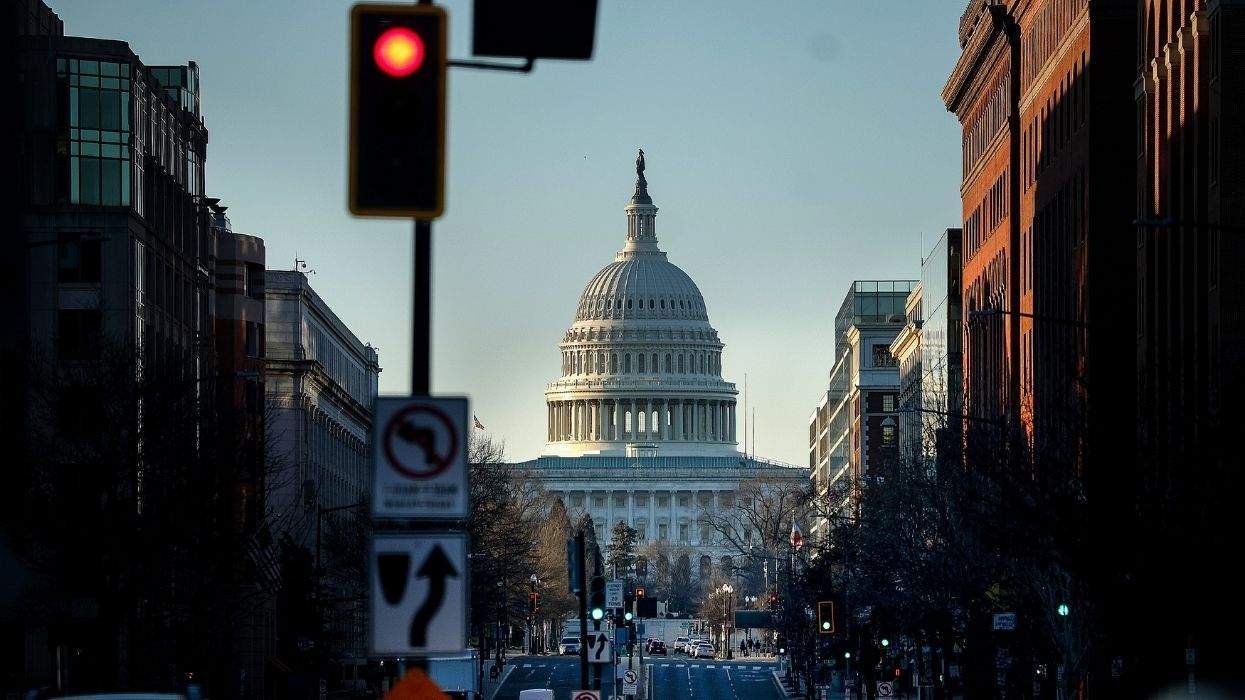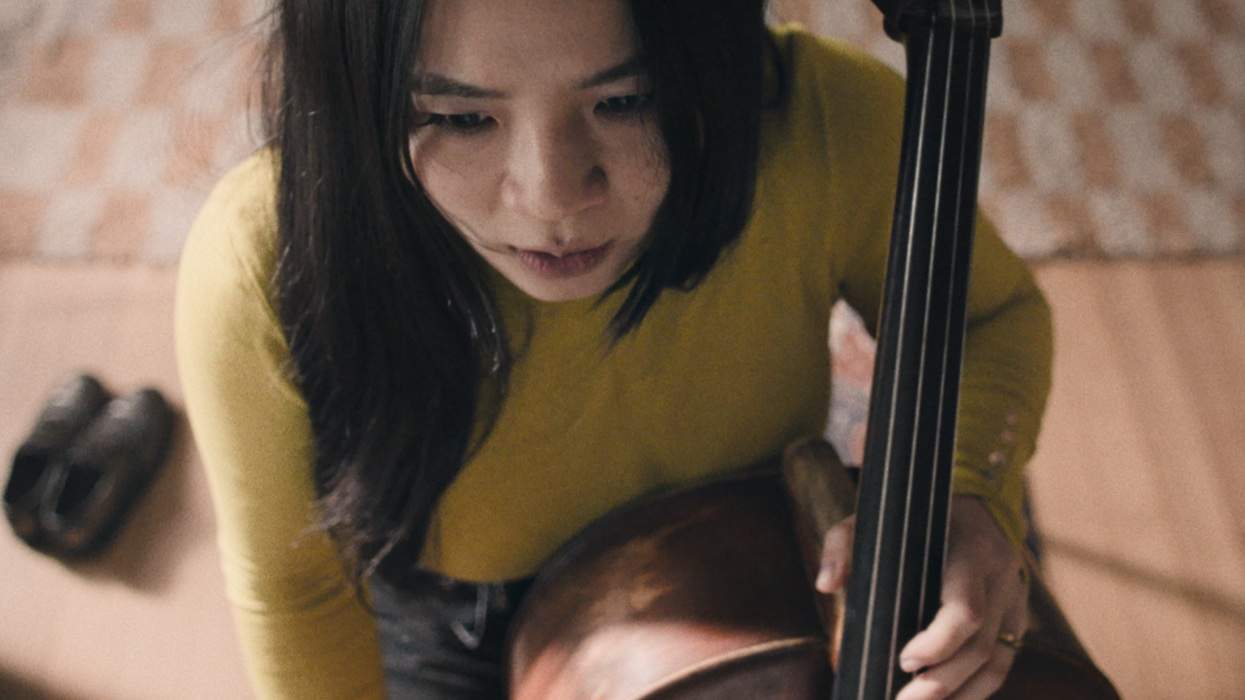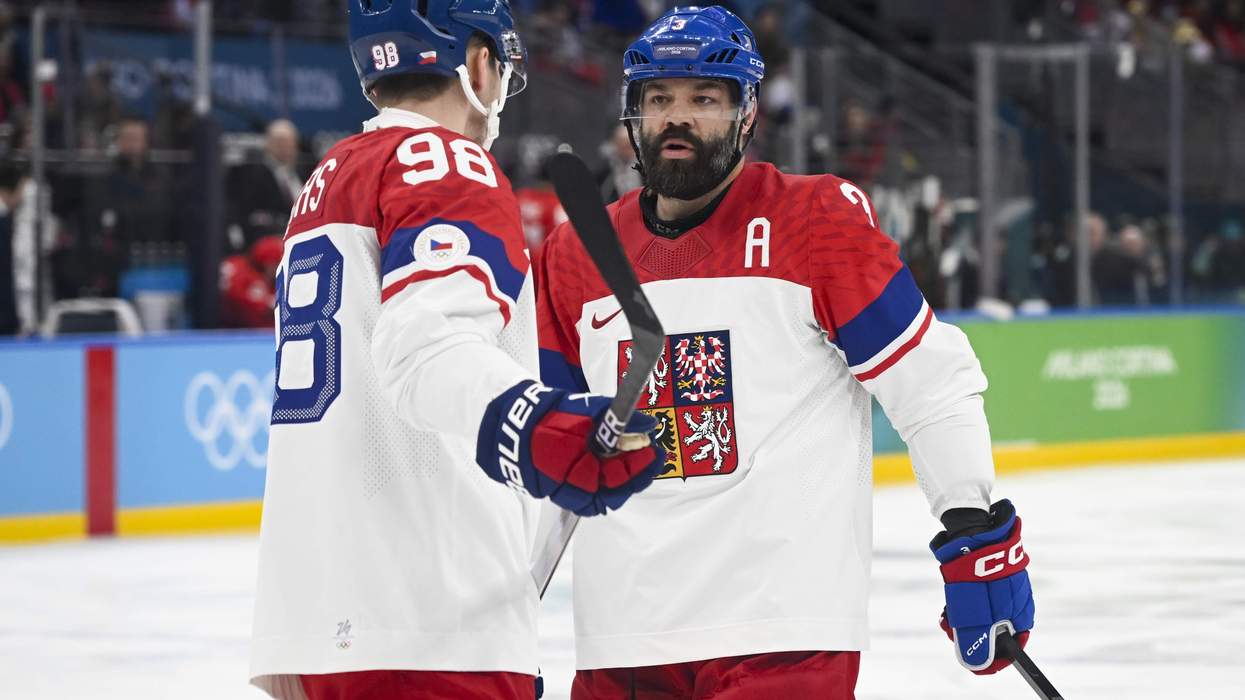For three years Paris journalist Franck Finance Maduraira (love his name) has tried to invoke a queer presence on the Croisette of the Cannes Film Festival, and a prize honoring the work of queer filmmakers. It is a noble and ambitious effort in this dinosaur of an event with a protocol that is rigid and obscenely heteronormative. A formal "queer" cinema jury is a great way to encroach on this sacred territory of red carpet events, obligatory formal evening wear ("smoking" and gowns), and noxious guards.
There is no better word that captures the nature of the Cannes Film Festival than inferno. This is a journey to experience the excesses of greed and lust and the recognition and rejection or acceptance of them thereof. Fans can gaze at the stars as they arrive in limos and through mediated imagery. Four thousand "media" mass descend and are held captive for the festival like a Hitchcock aviary. Of these are a couple of hundred journalists, and I was one of them.
I came to Cannes as a member of the Queer Palm Jury, and this has to be one of the best festival experiences I have ever had. Being mirrored at a predominately gender-coded event by peers, not only superficially but also on deeper levels of genuine cineaste spirit and outrageous frolicking, was intoxicating. We were invited to many parties, such as the International Critics Week (excessive risotto), the Chivas (a temple of Bacchus), and the American Pavilion Queer party, which Macy Gray and Lee Daniels attended.
Through all of this was the recognition of excess and the constant choice to accept or reject it. On the Croisette there are invitations for sex by high-class sex workers, and there are sumptuous bacchanalian opportunities if you are suited up for them. The trip over the edge of the cliff without well-entrenched restraint can be done in a snap. It helps to be sober, and there are daily AA meetings in town just for the festival.
The large red carpet event we attended was the premiere of Michael Haneke's Amour, the film that won the Palme d'Or. I was told that if I didn't wear a dress, I wouldn't get in. Last year a woman on the Queer Palm Jury was turned away for wearing pants. I recognize that I was cut out of a lot of pictures. I did not look like the prototype. And in some ways I have tortured myself a bit that I am not more "femme" and can't pass. French waiters in Paris have referred me to as "monsieur" for years. Photographers are after the classic Cannes look. There were over 100 photographers who snapped pictures. For the majority of them, they were interested in the president of our jury, French actress and producer Julie Gayet.
Julie Gayet is a breath of fresh air and reminds me of a fairy. She is funny and articulate, and it just so happens that she was born gorgeous. So the red carpet event for the Queer Palm Jury was labeled in the media as "Julie Gayet on the Red Carpet." Gayet has acted in five films as a lesbian and is adored by both the French press and the gay public. Julie was a real trouper and insisted always on being photographed with her jury, but our heads and bodies were often cropped off since she does not have total control of what is snapped. I was cropped off the most. The unfemme, the androgynous oddity, of the ensemble, the rebel of the dress code. This is the way the media treated my presence. Still, I know that everyone on the jury and Julie treated me as a valued member.
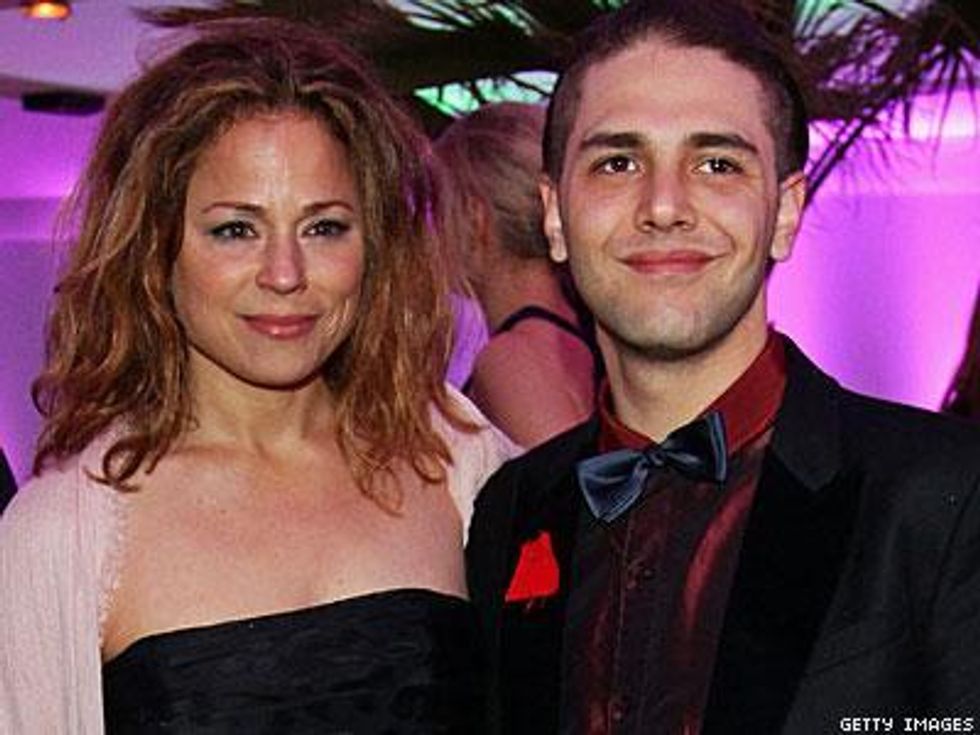
We had intense discussions about the film to nonor with the Queer Palm. My personal preference was Lee Daniels's The Paperboy. For me it was a mesmerizing document engaging the inherent connection between racism, sexism, and homophobia. I revel at the embedded meaning that this queer director has assembled with a fantastic cast (Macy Gray, Zac Efron, Nicole Kidman, John Cusack, Matthew McConaughey, and David Oyelowo) and crew. Our jury was divided on this one, and we had decided to award a film about which there was no division. We would Palm a film for its content and form and arrived at Xavier Dolan's Laurence Anyways, a film about a man who wants to live as a woman. There is no way this film cannot be regarded as queer.
Xavier Dolan (above, with actress Suzanne Clement) wanted to accept the prize, but his producer did not. In the end, even though he "accepted it," he did not show up to "accept" his award, symbolizing the inherent director-producer conflict. The reason given was that they couldn't get through the inferno, as I understood it. His absence was his presence, and even Xavier Dolan in the end made the Queer Palm "invisible."
At the Queer Palm awards the final night, we were photographed together. At one point a photo request was made by a man who wanted to be in the photo and who pushed me aside to be next to Julie. Julie looked at me in apology; that acknowledgment was important. Julie is just great. I know she is questioned for championing the Queer Palm, and I observe how she has to deal with droolers but holds her own with acumen. At bars I have been pushed aside, moved aside, or elbowed or ribbed. An evening gown and femme clothes might have helped, but regardless my gender is also at issue. When I was standing at the cafe bar getting a coffee with jury member Sarah Neal, a burly man forced his way through as if we were not even standing there. We remarked that he would never have done that if two men were standing. I decided to say something to that effect and he looked at me with irritation and surprise. I know it helped for me to separate totally from men at one point in my life to see where I begin and where I end. Since public physical space is an arena of genderfication, I decided to implode that invisible line. I realize since then that men cross over it all the time. When women do it, it is for different reasons.
Those wondrous enchanting creatures of the jury are: regal Sam Ashby, publisher of Little Joe, with imperious debonair charm; the invigorating hilarity and generosity of L.A. publicist Jim Dobson; the poetic enchantment of the magical Canal Plus journalist Frederic Niolle, the passionate and affectionate sweetness and brain power of Brisbane Queer Festival organizer Sarah Neal; and the relentless and affirming guardianship of Franck Finance Medieura journalist for Yagg, the largest queer internet portal in France.
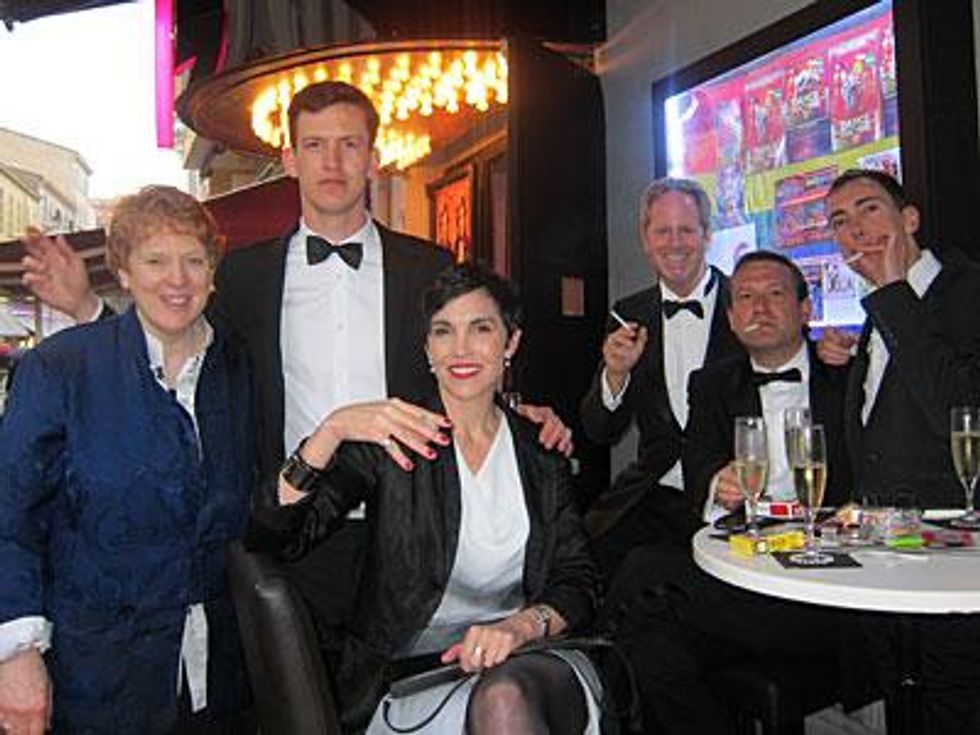
For me, we were the Queer Palm. We embodied the principles of our mission in our vision and teamwork. We exhaustively dissected each film that was on our program. Many of them were obviously not queer. But we loved them anyway for their unique perspectives. Franck told us that the definition of "queer" cinema would be of meaning to a young spectator seeing the Queer Palm winner, and would know it was a representation of him or herself. For this reason, even if Dolan (or his producer) may not have not wanted us to award the significance of his film, we chose Laurence Anyways -- a prophetic title for us. The French queer press in Nice and a Cineffable programmer in Paris agree. It is a paradox that what is obviously queer runs the risk of being ghettoized at a box office. Sometimes it does work like that. Dolan's film that was in the division Un Certain Regard went home prize-less from the "official juries" and snubbed the Queer Palm.
The Queer Palm may not make a real dent in the architecture of the pageant now, and it may take 10 years to do so. But queer audiences know of the Palm award. Regardless, making your way through the jungle of Cannes is often depleting, and for the queer spectator it's best to note the invisibility, continue to affirm queer identity, and not internalize the forces that don't matter.
When people unknown to each other assemble from all parts of the world and meet, they create a "dragon." In the spiritual sense a dragon is created out of order and chaos, the bound and the unbound. We are the mirrors of the conventions of society, and we have completed an odyssey, on a vision quest that has liberated those frozen steps. This is one memory I will cherish forever. Je t'embrasse toujours.
MOIRA SULLIVAN is a film critic with Fipresci Movie Magazine International and San Francisco Film Festivals.com


